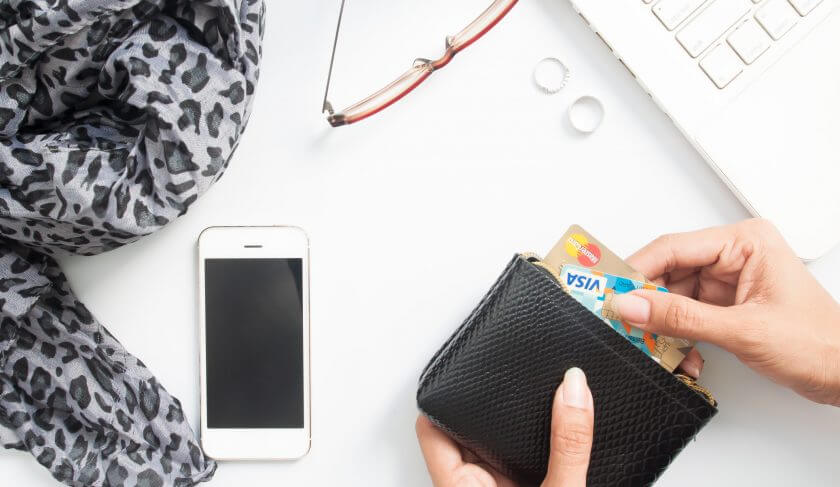Credit cards can be a convenient, safe way to make purchases and build your credit scores. Or they can be an expensive nightmare that could put you in bankruptcy court.
The difference isn’t so much in the cards you use as how you use them. Here are nine of the biggest mistakes you can make with plastic, and what you should do instead.
1. Not Using Them Strategically
A debit card may help you avoid overspending, but it also gives fraudsters a direct path into your bank account. Given frequent news of database breaches — including Orbitz and Lord & Taylor in 2018 — that should give you pause.
Credit cards offer consumers better protections, plus they function as a middleman when you have disputes with a retailer or service provider. Many cards offer additional perks, such as replacing goods that are stolen and extending manufacturers’ warranties. You should use credit cards for all major purchases and for transactions that carry a high risk of fraud, such as online shopping and swiping your card at a gas pump.
2. Missing a Payment
Want to see your good credit scores instantly drop 100 points or more? Skip a payment on your credit card. Paying a few days late means incurring late fees, but paying 30 or more days late signals to credit scoring formulas that you’re in over your head (even if you’re just forgetful). Pay 60 days late and kiss that great interest rate goodbye, since card issuers can and do impose penalty rates.
3. Maxing Them Out
A big chunk of your credit scores comes from how much of your available credit you’re using: the less, the better. Maxing out a card, even if you later pay the balance in full, can hurt your scores.
A better option is to spread your charges around so you don’t use more than about 30 percent of your available limit on any card. If you’re working to improve your credit scores, try to get that under 10 percent.
4. Carrying a Balance
Carrying balances doesn’t help your credit scores and can cost you a small fortune in interest payments. Contrary to popular belief, carrying a credit card balance is not the norm in the U.S. Some 62 percent of households don’t have credit card debt, according to the National Foundation for Credit Counseling.
5. Making Only Minimum Payments
If there’s a dumber financial move than carrying a balance, it’s paying only the minimum. Even credit card companies don’t like this behavior, since it can indicate you’re in dire financial straits and more likely to stop paying your bill.
Your credit card statement shows exactly how much it will cost you to carry your current balance if you pay only the minimum. (Hint: It’s a lot. You’re likely to pay more in interest than you currently owe, which means you’ll pay for everything you buy twice over.)
6. Not Checking Your Statement
When was the last time you actually combed through the individual charges on your credit card?
Many people don’t realize the cost of minimum payments is spelled out in their statement because they never bother to look at their statements. Bad move. If you don’t report merchant errors and fraudulent transactions promptly, you may have trouble getting refunds.
7. Using Them to Pay Medical Bills
It’s fine to use plastic to handle a co-pay or other small health care charge, as long as you promptly pay off the balance. If a medical provider pushes you to put a big bill on a credit card, though, beware.
That often makes you ineligible for any discounts or charity waivers that could dramatically lower your bill. Many providers offer interest-free payment plans as well, which are a much better alternative than credit card debt. Ask to speak to a financial counselor at the hospital or medical office to learn your options.
8. Taking a Cash Advance
A credit card will get you cash at an ATM, just as a debit card will. The big difference is that the credit card transaction is called a cash advance, and instantly triggers an interest rate north of 20 percent. A cash advance is better than using even higher-rate debt, such as a payday loan, but it’s better to avoid this kind of expensive borrowing entirely.
9. Ignoring Rewards
If you don’t carry a balance, you could be missing out on free money in the form of cash rebates, frequent traveler points and other benefits. If you’re not into monitoring complicated rewards programs, you can keep it simple by using a cash-back card.
As great as rewards can be, they’re not worth incurring the higher-than-average rates charged by most of these cards, so don’t charge more than you can pay off in full every month. And beware of the temptation to spend more to get more rewards. Charging what you’d normally spend to get rewards can be smart; spending more than you normally would to get rewards is just a budget buster.
Liz Weston is an award-winning journalist and author of several money books, including the best-selling “Your Credit Score.”








